Jack Bruce
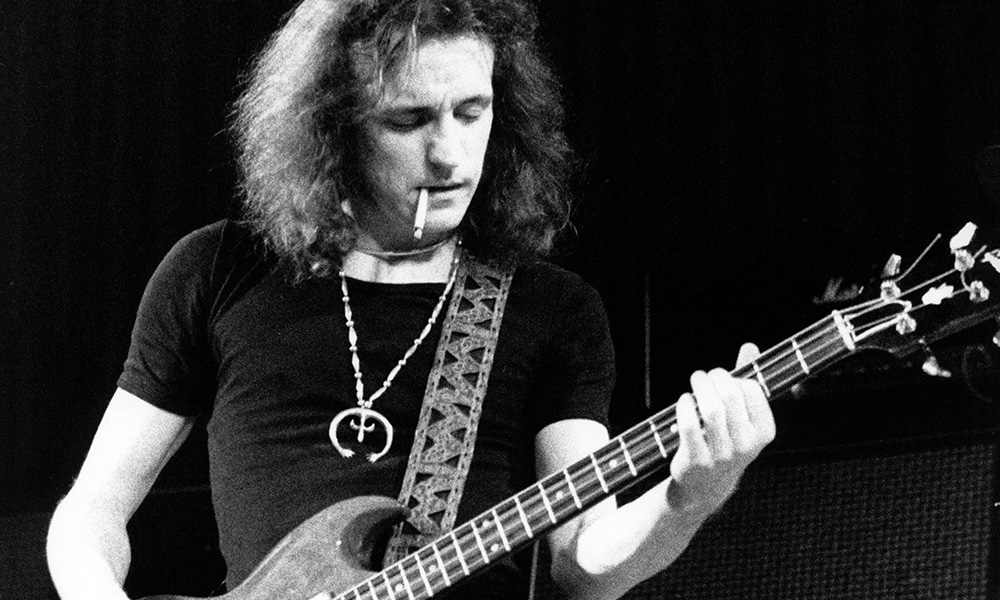

When the dust had settled, it became clear that Cream’s debut album, Fresh Cream, released in December 1966, had been a solid Top 10 UK success rather than a phenomenon. Had that album had anyone else’s name on it, it would have been deemed a massive achievement, but, given the pedigrees of Eric Clapton (guitar/vocals), Jack Bruce (bass/vocals) and Ginger Baker (drums), it seemed that nothing less than a masterpiece would do. Fresh Cream, some observers said, had too many covers on it and too little punch.
It was an opinion shared by Cream’s US label, Atco (a subsidiary of Atlantic Records), who pushed the group to record their second album at Atlantic’s New York studios, then situated at 1841 Broadway, on the corner of 60th Street. The album was recorded very quickly, in between the heavy commitment to tour dates which was Cream’s constant story, and one which probably contributed to the band’s early demise.
1967 had kicked off with Cream undertaking a gruelling UK tour plus an appearance on BBC TV’s Top Of The Pops programme. After three months of virtually non-stop dates, Cream flew on March 22nd to New York, where between March 25th & April 2nd they guested on the Murray The K show, alongside a stellar line-up, with, amongst others, The Who, Wilson Pickett and Simon and Garfunkel, but playing only one to two songs a day. Its importance for Cream was that it introduced them to the New York music cognoscenti, who spread the word, especially after many late night jams in the city.
Cream had expected to do some recording in New York, and Atlantic boss Ahmet Ertegun did agree to a couple of days in the studio to record a single. Ertegun wanted a blues track, so they duly laid down a version of the traditional Lawdy Mama – a traditional 12-bar number, which was in their live set – with Eric Clapton singing lead. Ertegun was producing, but the session was visited by a young producer, Felix Pappalardi, who offered to do some work on the track. The next day he returned with a new melody, plus lyrics created by his wife, Gail Collins, over the top of the basic track. ‘Felix turned it into a McCartney-esque pop song,’ recalled Clapton, who reluctantly agreed to play on the track when it was decided that he could add a blues guitar solo. ‘That was like an unspoken deal. If I gave in and played on this pop song, I could play an Albert King guitar solo.’ Clapton completed the track, now titled “Strange Brew”, but the former bass part remained, much to Jack Bruce’s continuing annoyance, since there are places where it doesn’t quite fit the new guitar parts.
Having used up their allotted time, the band then returned to Britain where they began to work up the material for their next album, often in the small hours after gigs.
Cream returned to New York on 8th May and entered the studios on the 11th. The engineer was Tom Dowd, a seasoned veteran, the first person to record in stereo and a pioneer of multi-track recording, who went on to work with Clapton again on his solo recordings and the Layla album by Derek & the Dominos. Producer from then on was Felix Pappalardi, whose vision would prove central to Disraeli Gears. ‘He was like an A&R man,’ Clapton recalled of Pappalardi, ‘who would take what we had and make it more evolved.’
The recording of Disraeli Gears was characterised by an underlying tension, with Cream’s management and Atlantic keen to push Clapton into the spotlight as the front man, and resistance being voiced towards some of Bruce’s songs (many co-written with lyricist Pete Brown, who listed his lyrical obsessions of the time as ‘sex and dancing’). ‘I was kinda gutted’, Bruce recalls, ‘because I’d done a lot of work, and I’d mostly been the lead singer, and it was working pretty well.’ In support of this notion, Pete Brown wrote in his autobiography that Cream had recorded a number of song demos, (at Spot Productions in Mayfair), in March 1967, intended for the second album, but that the tape ‘mysteriously disappeared’. The songs included two that were subsequently cut for Jack Bruce’s debut solo album Songs For A Tailor (Weird Of Hermiston and The Clearout), plus SWLABR, Take It Back, We’re Going Wrong and an early version of Blue Condition, all of which eventually made it on to Disraeli Gears. The tape was found in 1986, leading to the rediscovery of Hey Now Princess, which was revamped and included on Jack Bruce’s 1989 Question Of Time album.
Despite all this, it was clear that Cream had found another level, both in their own compositions and their interpretation skills. SWLABR was an angular stomper that dealt with, as Pete Brown put it, ‘the war between the sexes’. The title was an acronym for ‘She Walked Like A Bearded Rainbow’, which came from an incident when flowers were delivered one day to Brown’s flat. Jack Bruce had ordered them for his then-girlfriend, but hadn’t specified the type of flower; Brown was particularly taken by the way the long stems of the flowers swayed around and told Bruce that the flowers reminded him of the way girls walk. The flowers turned out to be Irises – a variety supposedly known as ‘Bearded Rainbow’. Pete Brown’s floral understanding may not be 100% accurate, but the Iris does take its name from the Greek word for rainbow, and there is a subgenus called ‘Bearded’, so it’s a plausible connection.
Dance The Night Away was a hypnotic wig-out featuring a rare use by Clapton of the electric 12-string guitar, apparently Jack Bruce’s suggestion. We’re Going Wrong was an atmospheric cri de coeur that had its origins in an argument between Bruce and his partner, while Blue Condition was a feature for its writer, Ginger Baker.
Tales Of Brave Ulysses, with lyrics by a friend of Eric Clapton, illustrator Martin Sharp, was released as the B side of Strange Brew in June 1967, and featured the imaginative use of the new wah-wah pedal. Clapton had acquired it only that morning, from Manny’s instrument shop on 48th Street, and it predated Jimi Hendrix’s similar wah-wah usage on The Burning Of The Midnight Lamp single, released in August 1967. The lyrics are inspired by Homer’s Odyssey, an account of the adventures undertaken by Ulysses, lyricist Sharp later explaining that he had recently returned from Ibiza, the source of many of the images in the song. Clapton meanwhile had been writing a tune based on a descending chord sequence, when, in a chance encounter, Sharp gave him the words, written on the back of a beer mat.
One track stood out above the others. The descending riff of “Sunshine Of Your Love” had been created by Bruce and Brown as they sat up into the early hours writing, and Clapton provided the bridge part and the title. Ginger Baker pounded across the beat in a style suggested by Tom Dowd, the whole creating a track that sounded like nothing else around at the time. Only label boss Ahmet Ertegun failed to recognise the song’s potential. ‘I remember playing it to Ahmet and he called it ‘psychedelic hogwash’ ‘, Bruce later remembered. History, of course, has proved Ertegun wrong. Sunshine Of Your Love went to number 5 in the US singles charts in Spring 1968, and was the springboard that broke Cream in mainstream America: the flash of true genius that alerted people to its parent album and brought them in droves to the band’s exhausting tours of the States.
After only five days in the studio, Cream took a flight back to Europe and continued their punishing schedule, leaving the production team to finish the mixes. Their labels didn’t seem to be in a rush to release the album, because July 8th found the band doing a photo session for the album on Ben Nevis in Scotland, after which Baker and Clapton raced each other down the mountain.
It was to be a further four months before the album came out. The album title was a corruption by Cream’s roadie, Mick Turner, of a description of racing bicycle gears known as ‘derailleur gears’. Benjamin Disraeli was a 19th Century British Prime Minister, hence Disraeli Gears. The psychedelic cover was designed by Australian artist Martin Sharp, Clapton’s friend who had contributed the lyrics to Tales Of Brave Ulysses.
Disraeli Gears was released in November 1967 and was hugely successful, peaking at #5 in the UK and charting for 42 weeks, while in the US it hit number 4 and stayed in the chart for two weeks short of a whole year.
Cream were, in many ways, the perfect band, and Disraeli Gears was their finest hour. It’s a record that spills over with talent while addressing the everyman issues of passion, self-doubt, hatred and – most important – volume. Turn it up loud and remember Cream this way.
Jack Bruce died of liver disease on 25 October 2014, in Suffolk, England, aged 71. In March 2011 Rolling Stone readers selected him as the eighth greatest bass guitarist of all time. “Most musicians would have a very hard time distinguishing themselves if they wound up in a band with Eric Clapton and Ginger Baker,” the magazine said at the time, “but Jack Bruce was so gifted on the bass that he did it with ease.”
Important Dates In The Life Of Jack Bruce:
|
22
Jul
2024
English blues and rock musician, songwriter and producer John Mayall died at his home in California, at the age of 90. Known the 'father of the UK blues movement', his Bluesbreakers Band has featured Eric Clapton Mick Taylor, Mick Fleetwood, John McVie, Jack Bruce, Peter Green and Jimmy McCulloch. He had a career that spanned nearly seven decades, remaining an active musician until his death.
|
|
19
May
2023
English performance poet, lyricist, and singer Pete Brown died at the age of 82. Together with Jack Bruce he wrote many of Cream's songs, including the hits 'I Feel Free', 'White Room' and with Eric Clapton 'Sunshine of Your Love'.
|
|
6
Oct
2019
Ginger Baker, the legendary drummer and co-founder of rock band Cream died at the age of 80. The drummer co-founded Cream in 1966 with Eric Clapton and Jack Bruce. The band released four albums before splitting in 1968, after which he formed the short-lived band Blind Faith with Clapton, Steve Winwood and Ric Grech. Baker, one of the most innovative and influential drummers in rock music also played with Blind Faith, Hawkwind and Fela Kuti in a long and varied career. In 1962, joined Alexis Korner's Blues Incorporated on the recommendation of Charlie Watts - who was leaving to join the Rolling Stones and later gained early fame as a member of the Graham Bond Organisation alongside bassist Jack Bruce.
|
|
5
Nov
2014
The funeral for Jack Bruce
was held in London, attended by Eric Clapton, Ginger Baker and noted musicians Phil Manzanera, Gary Brooker, Vernon Reid and Nitin Sawhney among others. Dozens assembled at the Golders Green Crematorium paying a last tribute singing "Morning Has Broken", "Strawberry Fields Forever" and "Theme for an Imaginary Western". The Scottish-born bass player and singer had died last month as a result of liver disease.
|
|
25
Oct
2014
Jack Bruce, best known as one third of Cream died of liver disease aged 71. Bruce played bass, sang and was the principal songwriter in Cream, and his CV reads like a comprehensive guide to the British blues boom, with spells in Alexis Korner’s Blues Inc, the Graham Bond Organisation, John Mayall’s Bluesbreakers and Manfred Mann.
|
|
2
May
2005
Eric Clapton joined former Cream members Ginger Baker and Jack Bruce for the first of four nights at London's Royal Albert Hall 36 years after they had split up. Tickets were changing hands for more than £500 on eBay and fans had flown over from the USA to witness the reunion, which Clapton aged 60, is said to have agreed to because of the failing health of the other former members of the band.
|
|
1
Jan
1984
Alexis Korner died of lung cancer aged 55. Know as "the Founding Father of British Blues", he was a major force behind the UK early 60s R&B scene. Formed Blues Incorporated; members at various times included Jack Bruce, Ginger Baker, Long John Baldry, Graham Bond and Charlie Watts. Had hits with CCS, including a version of Led Zeppelin's 'Whole Lotta Love' which was used as the theme for BBC's Top Of The Pops for several years. He became a radio presenter in the Seventies.
|
|
8
May
1974
UK 36-year-old British keyboard player, Graham Bond, took his own life. The artist was briefly a member of Blues Incorporated, a group led by Alexis Korner, before forming the Graham Bond Quartet, with a lineup of Bond on vocals and organ, Ginger Baker on drums and Jack Bruce on bass.
|
|
9
Dec
1966
Supergroup Cream released their debut studio album Fresh Cream in the UK. The three piece of Eric Clapton, Jack Bruce and Ginger Baker also released their second single 'I Feel Free' on the same day.
|
|
29
Jul
1966
Eric Clapton, Jack Bruce and Ginger Baker made their live debut as Cream at The Twisted Wheel, Manchester, England. The group's third album, Wheels of Fire, was the world's first platinum-selling double album.
|
|
16
Jul
1966
Jack Bruce, Ginger Baker and Eric Clapton formed Cream. The three piece group only lasted two years, leaving behind some classic recordings including ‘Sunshine of Your Love,’ ‘Badge,’ ‘Strange Brew,’ and ‘White Room.’
|
|
2
Jul
1966
David Bowie and The Lower Third appeared at The Lion Hotel in Warrington, England, (they were paid £30 for the gig). Also appearing was The Powerhouse which featured Eric Clapton, Jack Bruce, Steve Winwood and Paul Jones.
|
|
5
May
1966
Manfred Mann were at No.1 on the UK singles chart with 'Pretty Flamingo'. The recording features future Cream bassist Jack Bruce, who briefly joined the band in 1965. On their Top Of The Pops appearance, singer Paul Jones performed whilst standing on one leg.
|


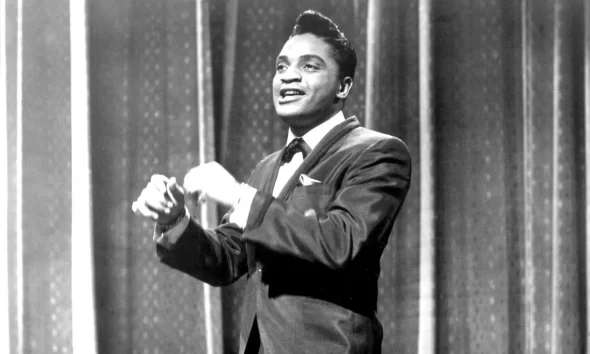
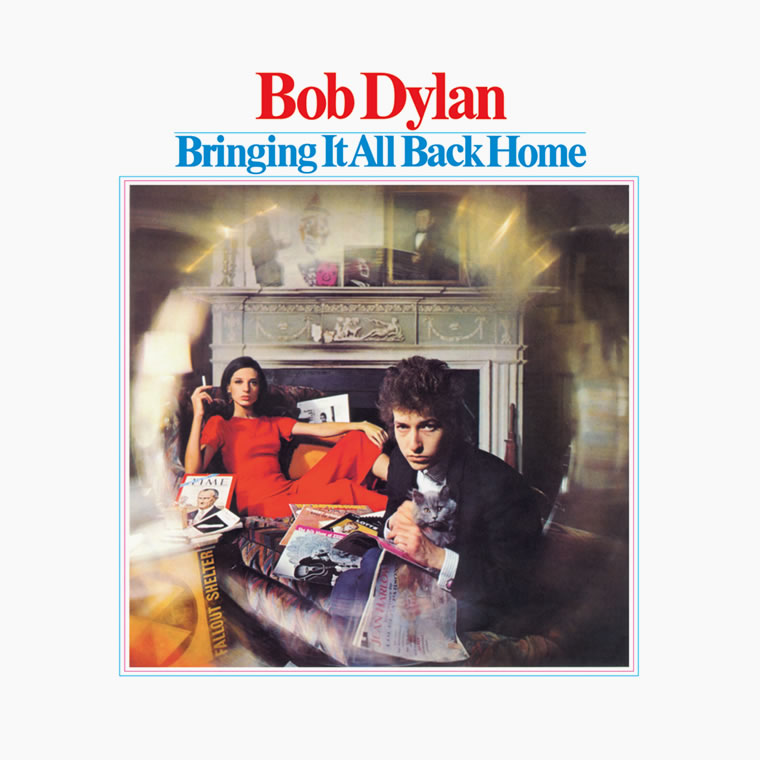
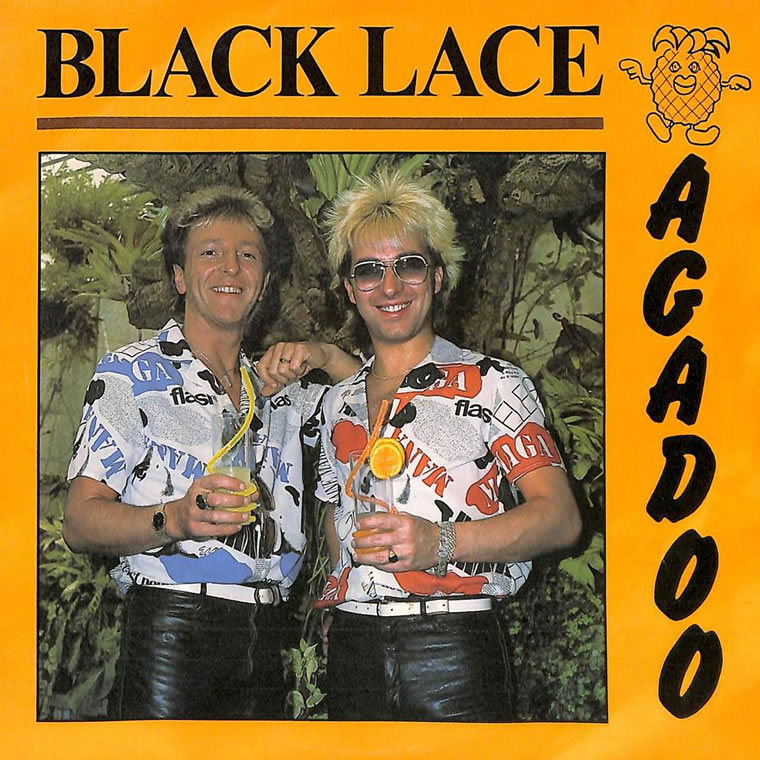
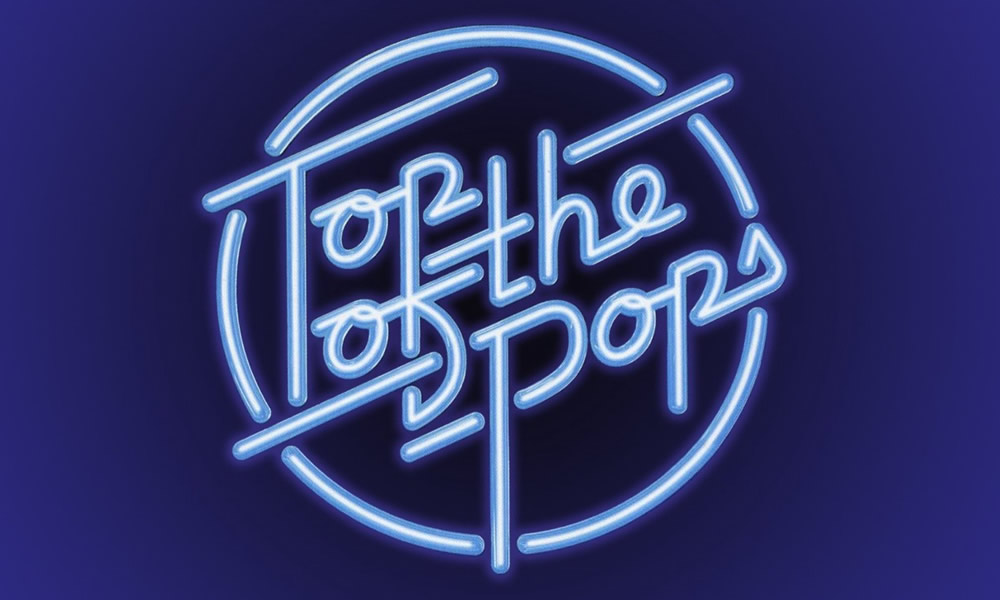
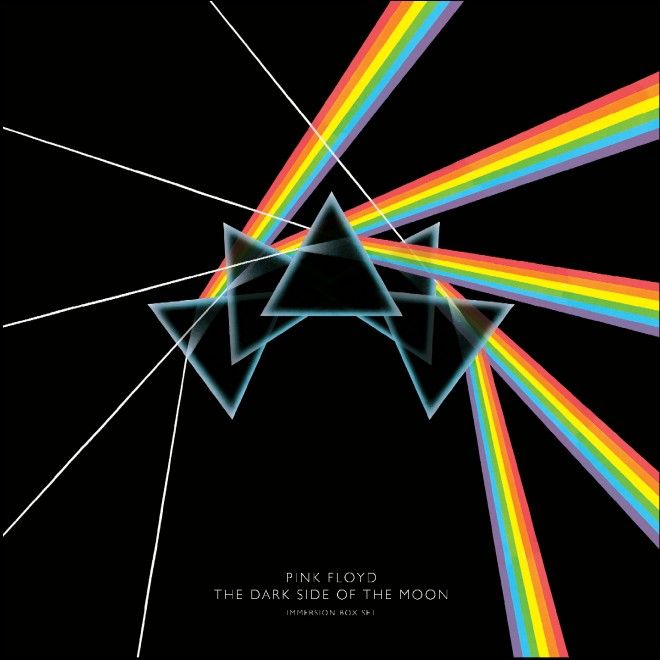
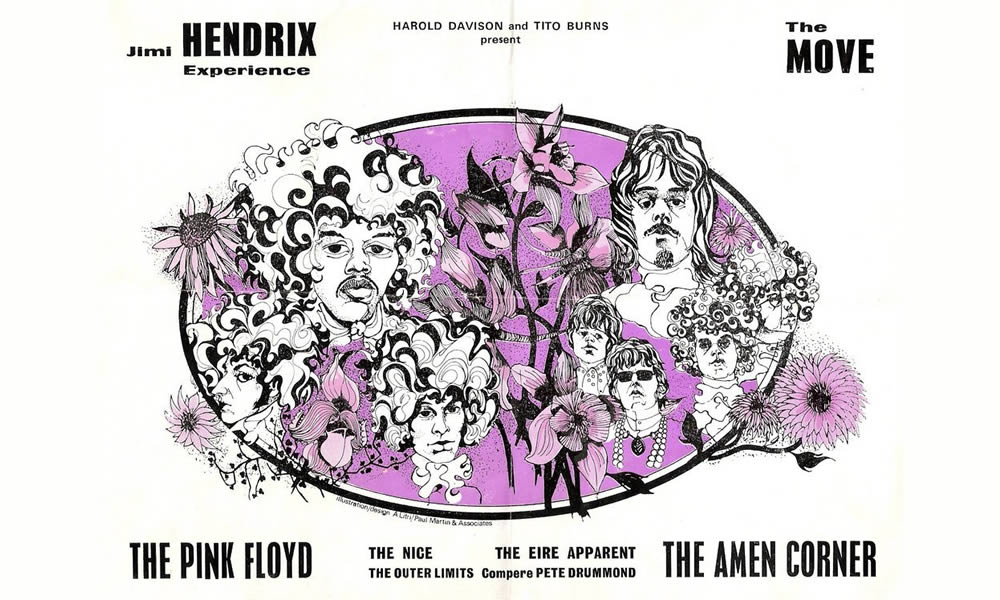


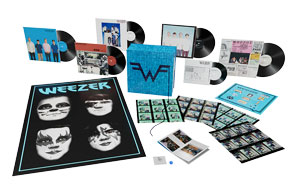
Byers Christopher
July 25, 2019 at 2:09 pm
Spring 1968. Not 1978
Neil Cossar
July 26, 2019 at 5:45 am
Well spotted and we have corrected!